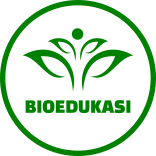Monopoly Board Game as Augmented Reality-Based Interactive Learning Media for Improvement of Cognitive, Communication, Collaboration of Students Sdn 4 Rejoyoso Bantur Malang
DOI:
https://doi.org/10.19184/bioedu.v23i2.53705Keywords:
Augmented reality , Cognitive , Learning mediaAbstract
Augmented reality-based interactive learning media improve cognitive learning outcomes, communication, and student collaboration. The research design uses a quantitative approach with several stages, including the pre-research stage, which contains research on materials and the manufacture of learning media, the research stage, which contains the application of learning tools, and the post-research stage, namely the analysis of the data that has been collected. The research data source was conducted on 36 fifth grade students at SDN 4 Rejoyoso, who were divided into two groups: the treatment group and the control group. The results of the cognitive scores obtained in the treatment group through the N-gain score test, with an average of 80.14, are included in the effective category. The results of the unpaired t test yielded a Sig (2-tailed) value of 0.000 on communication and collaboration skills, showing that the monopoly media applied had an effect on improving the psychomotor skills of fifth grade students at SD Rejoyoso 4. It can be concluded that the MONOPOLY board learning media based on augmented reality has an effect on increasing the cognitive learning, communication skills, and collaboration of SDN 4 Rejoyoso Bantur Malang students.
Downloads
References
Angganing, P., Budiningsih, C. A., & Haryanto. (2022). The Profile of Students’ Communication Skills on Science Learning in Elementary Schools. Pegem Egitim ve Ogretim Dergisi, 13(1), 117–124. https://doi.org/10.47750/pegegog.13.01.14
Aziz, S., & Akram, M. (2022). Diagnosis of Misconceptions in Biology Part of General Science Book: a Case Study of Primary School Students. Pakistan Journal of Social Research, 04(04), 800–808. https://doi.org/10.52567/pjsr.v4i04.894
Blasco, J., Bernabe, G., Marín, P., & Moret, C. (2021). Efectos del uso educativo de la música en el desarrollo emocional de niños de 3 a 12 años: una revisión sistemática. International Journal of Environmental Research and Public Health, 18(7).
Daryanes, F., Darmadi, D., Fikri, K., Sayuti, I., Rusandi, M. A., & Situmorang, D. D. B. (2023). The development of articulate storyline interactive learning media based on case methods to train student’s problem-solving ability. Heliyon, 9(4), e15082. https://doi.org/10.1016/j.heliyon.2023.e15082
Edison, & Aman. (2024). Comparison of Cognitive Learning Outcomes Among Eighth-Grade Junior High School Students Using Monopoly Games and Pop-up Books as Educational Media in ASEAN Social Studies. Al-Ishlah: Jurnal Pendidikan, 16(4), 5507–5520. https://doi.org/10.35445/alishlah.v16i4.5917
Falah, M. (2021). Digitalisasi pada Program Kampus Merdeka untuk Menjawab Tantangan SDGs 2030. Sultan Agung Fundamental Research Journal, 2(2), 87–94. http://jurnal.unissula.ac.id/index.php/safrj/article/view/17991%0Ahttp://jurnal.unissula.ac.id/index.php/safrj/article/download/17991/6084
Harefa, D., Sarumaha, M., Telaumbanua, K., Telaumbanua, T., Laia, B., & Hulu, F. (2023). Relationship Student Learning Interest To The Learning Outcomes Of Natural Sciences. International Journal of Educational Research & Social Sciences, 4(2), 240–246. https://doi.org/10.51601/ijersc.v4i2.614
Jayanti, D. N. D., & Susantini, E. (2021). Profil Miskonsepsi Peserta Didik SMA pada Materi Kingdom Animalia Menggunakan Four-Tier Multiple Choice Diagnostic Test. Berkala Ilmiah Pendidikan Biologi (BioEdu), 10(3), 479–489. https://doi.org/10.26740/bioedu.v10n3.p479-489
Onu, P., Pradhan, A., & Mbohwa, C. (2024). Potential to use metaverse for future teaching and learning. In Education and Information Technologies (Vol. 29, Issue 7). https://doi.org/10.1007/s10639-023-12167-9
Parapat, P. S. E., & Berlien, R. (2021). Analisis Strategi Recovery Ekonomi Desa Berbasis Internet of Things (IOT) pada Kelompok Petani Kopi Desa Motung Kabupaten Tobasa. Jurnal EK&BI, 4, 2620–7443. https://doi.org/10.37600/ekbi.v4i2.351
Pradana, M. D., & Uthman, Y. O. O.-O. (2023). Development of Aqidah Akhlak Learning Media “Board Game Based on Education Fun on the Theme of Commendable Morals (E-Fun A2M)” for High School Students. Assyfa Learning Journal, 1(1), 25–36. https://doi.org/10.61650/alj.v1i1.9
Rahma, H., & Asih, S. S. (2024). Development of monopoly learning media based on joyful learning model on natural sciences and social material. Research and Development in Education (RaDEn), 4(1), 237–251. https://doi.org/10.22219/raden.v4i1.32594
Razakek, N. F. S. A., Yusof, Z. Y. M., Yusop, F. D., Obaidellah, U. H., Kamsin, A., & Nor, N. A. M. (2024). Exploring Malaysian schoolchildren’s perception of the advantages and disadvantages of the ToothPoly board game: a qualitative study. Journal of Clinical Pediatric Dentistry, 48(1), 101–110. https://doi.org/10.22514/jocpd.2023.096
Triyono, A., Nuary, R. H., Permatasari, N., Yuni, Y., & Wibowo, T. (2024). The Level of Effectiveness of TPS and Conventional Methods Judging from Students’ Geometry Learning Results Using the N-Gain Test. AlphaMath : Journal of Mathematics Education, 10(1), 125. https://doi.org/10.30595/alphamath.v10i1.21530
Wijaya, A., Elmaini, & Doorman, M. (2021). A learning trajectory for probability: A case of game-based learning. Journal on Mathematics Education, 12(1), 1–16. https://doi.org/10.22342/JME.12.1.12836.1-16
Downloads
Published
Issue
Section
License
Copyright (c) 2025 Ajeng Daniarsih, Devi Mariya Sulfa, Rizal Muhaimin, Ghauts Mannah Aji Abdillah, Robiatul Kahlakul Karimah, Nurul Kholifah

This work is licensed under a Creative Commons Attribution-NonCommercial-NoDerivatives 4.0 International License.





